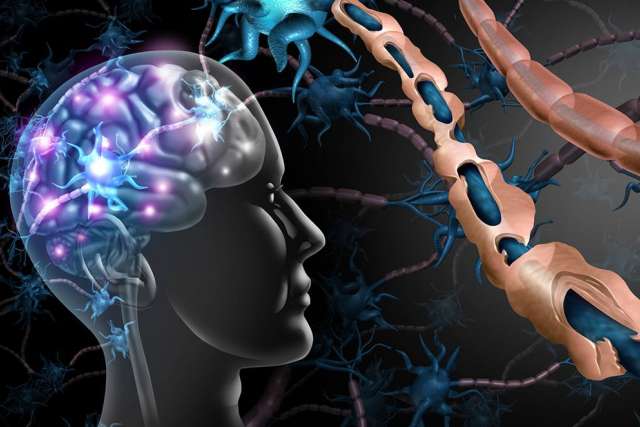Multiple sclerosis (MS) is a disease of the central nervous system (brain and spinal cord). It disrupts the flow of information to and from the brain, causing symptoms throughout the body. Fatigue is one of the most common symptoms of MS, affecting as many as 75% to 90% of all people with MS.
Unlike the common fatigue that most people experience, MS fatigue is physical and mental exhaustion that sets in at any moment and without any obvious cause. It can present as heavy tiredness (lassitude), difficulty performing daily tasks or physical weakness. Two-thirds of people who suffer from MS fatigue say it limits their day-to-day function.
According to Kevin Patel, MD, a UCLA Health neurologist specializing in multiple sclerosis, how MS fatigue affects someone depends on what’s causing it. “The challenge is knowing how much of the fatigue is from the primary brain disease and how much is from other factors associated with MS,” Dr. Patel says.
The good news is that there are ways to reduce and treat MS fatigue. Once you identify the cause, relief is possible.
Addressing MS fatigue
Identifying the reason you’re fatigued is the first step in treating it. According to the National Multiple Sclerosis Society, MS fatigue falls into one of two categories:
- Directly caused by MS (primary), resulting from the changes in the brain and damage to the central nervous system
- Related to MS symptoms (secondary), which interfere with sleep or directly cause fatigue
To narrow down what’s initiating your fatigue, keep a log to share with your doctor. “The more information we have, the better we’ll be suited to identify the cause and target the best interventions to treat the fatigue,” Dr. Patel says.
MS fatigue interventions can include:
Ruling out or resolving non-MS causes of fatigue
People with MS can experience fatigue unrelated to the disease. To identify potential non-MS reasons for fatigue, your doctor may take steps including:
- Blood tests, to rule out thyroid issues, anemia and other conditions possibly affecting energy level and sleep
- Screening for sleep quality, to identify issues such as obstructive sleep apnea and anxiety, which can interrupt sleep
- Checking for infections, which may manifest as fatigue
Reviewing MS symptoms medication
People take medications for many MS symptoms, such as bladder irritability, neuropathic pain and muscle spasticity. The medication side effects often include fatigue and sedation.
“It’s not uncommon for patients to be on a wide variety of medications for complications of MS,” Dr. Patel says. “More than half of people with MS take medication for burning or tingling neuropathic pain, and those medicines cause feelings of sedation.” Review your medications and their side effects with your doctor to see if changes are possible.
Setting up an exercise regimen
Studies show that a regular exercise regimen can reduce fatigue by 40% to 50% in people with MS, Dr. Patel says. “Having a consistent exercise regimen raises a person’s baseline energy level. If that regimen stops, fatigue can start up.”
According to the American Academy of Neurology (AAN), there is no single best exercise program recommended for people with MS. The activity you choose may depend on your type of MS, level of ability and how much you overheat. Dr. Patel recommends aiming for 20 to 30 minutes of moderate intensity exercise each day.
Getting help for depression
For people with MS, the prevalence of depression is 40% to 50% higher than in the general population. Both depression and the reduced physical activity that often accompanies it may cause fatigue. “Often, addressing someone’s depression goes a long way in addressing their fatigue,” Dr. Patel says. Speak to your primary care physician if you have symptoms of depression.
Addressing heat sensitivity
Heat sensitivity is very common for people living with MS. When nerve fibers become overheated, they cannot properly send signals through your central nervous system, resulting in fatigue. The AAN recommends taking steps to lower your body temperature, especially during exercise and hot weather. Choose to stay in a cool environment, wear a cooling vest and use cold water to bring your temperature down.
Improving bladder function
When your bladder isn’t functioning properly, it can keep you up at night. “Brain and spinal cord problems often cause spasticity of the bladder and irritable bladder,” Dr. Patel says. “These issues disrupt sleep and cause fatigue.” Talk to your doctor about physical therapy, advanced therapies (Botox or electrical stimulation) and medications to improve your bladder’s function.
Working with a physical or occupational therapist
People living with MS, especially those with disability, may experience muscle weakness or tire quickly. Physical and occupational therapists can help you work smarter instead of harder when it comes to daily activities. They can teach you to conserve energy and provide a safe exercise regimen to build your muscle strength.
Considering medication for lassitude
If your fatigue appears to be directly caused by MS, your doctor may prescribe medication to ease the symptoms. “It’s not uncommon for people to have such debilitating fatigue that we sometimes use small doses of certain medications to help,” Dr. Patel says. “We look at that option after we evaluate all the possible causes, both MS and non-MS related.”
If you are living with MS and need help managing fatigue, reach out to your primary care provider or community neurologist.



